Therapeutic food has arrived in Gordhim, South Sudan
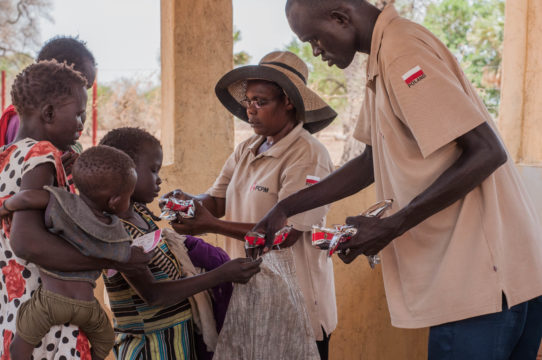
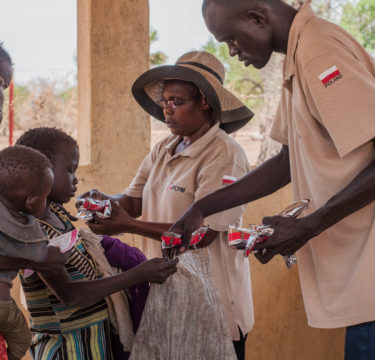
The aid transport arrived at the Gordhim Nutrition Center in South Sudan. It traveled from Nairobi for 2 weeks over 2,000 kilometers. The road is difficult, but this allowed the PCPM Foundation to save money and purchase more portions of therapeutic food. Thanks to donor contributions, PCPM has purchased as many as 45,000 servings for 24 000 USD.
The shipment arrived at the Gordhim Nutrition Center in South Sudan, bringing with it 45,000 servings of therapeutic food, courtesy of generous donors from Poland. This year, the PCPM Foundation also contributed medicines and, additionally, okra and sukuma wiki seeds (a plant similar to kale). The center’s dedicated staff will plant these seeds at the Gordhim center and distribute them to mothers, enriching the children’s diets.
PCPM intentionally opted for road transport, despite its longer duration compared to air transport, due to several advantages. The food is being transported from Kenya, where the PCPM Foundation has been actively involved in various projects for over a decade. Some essential items, including therapeutic food, are locally purchased through the Polish Center for International Aid. This approach not only supports local businesses but also significantly reduces transportation costs, allowing more food portions to reach Gordhim in South Sudan .
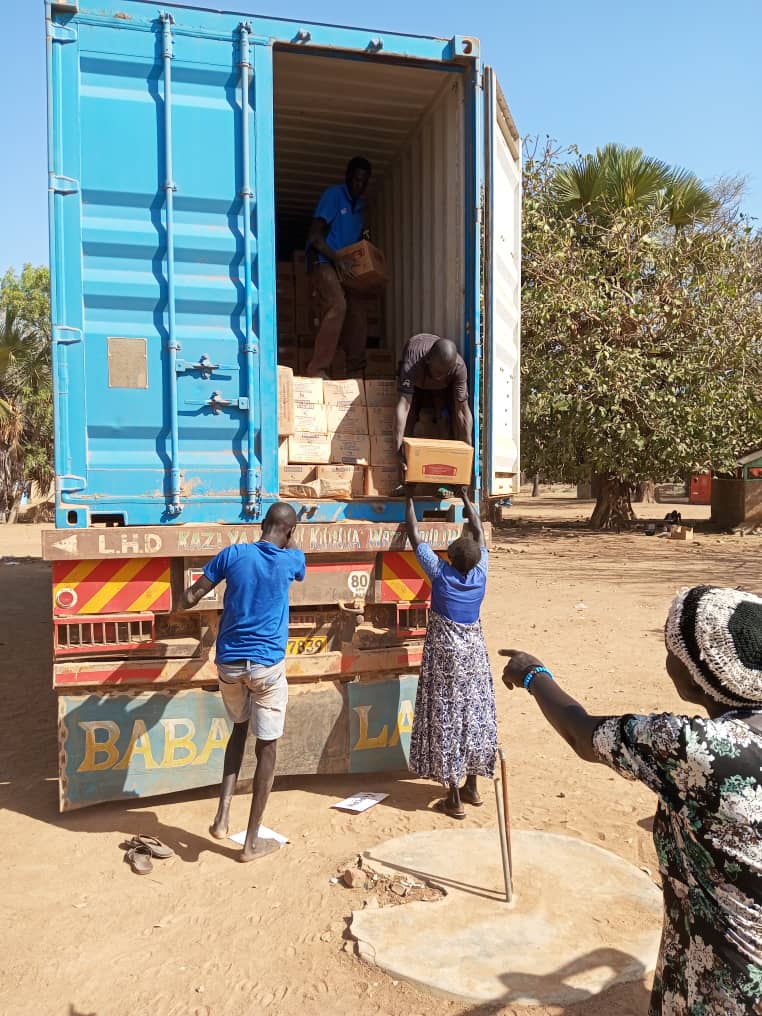
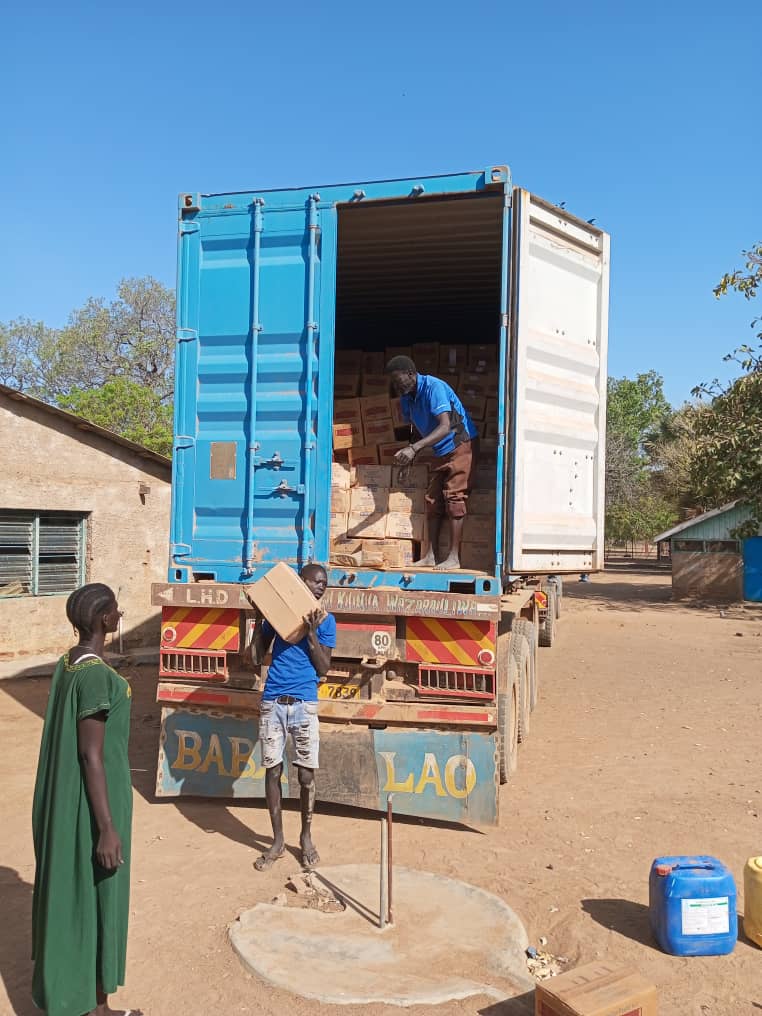
The shipment at the Gordhim Nutrition Center
“As per the navigation, the estimated driving time from Nairobi to Gordhim was 37 hours. However, the actual journey took much longer—two weeks, to be precise. This year, in addition to providing therapeutic food, we also supplied medicines to the Gordhim child nutrition center, ensuring its operation for an entire year,”
Wojtek Wilk, CEO Polish Center for International Aid
One of the world’s biggest crises
This crisis is one of the world’s most significant challenges. Consecutive years of record-breaking floods have triggered mass migration, destroyed livelihoods, and led to the loss of agricultural land, exacerbating hunger. These climate shocks occur simultaneously and are compounded by rising food and fuel prices, as well as ongoing conflict.
Regrettably, even in the 21st century, when many countries have an abundance of food, children in South Sudan are dying of starvation. The situation in the country worsens each year. At the Gordhim Nutrition Center alone, last year saw as many children requiring nutritional therapy as in the preceding several years. Remarkably, just three servings of a special paste administered over a week can help a malnourished child gain a kilogram in weight.
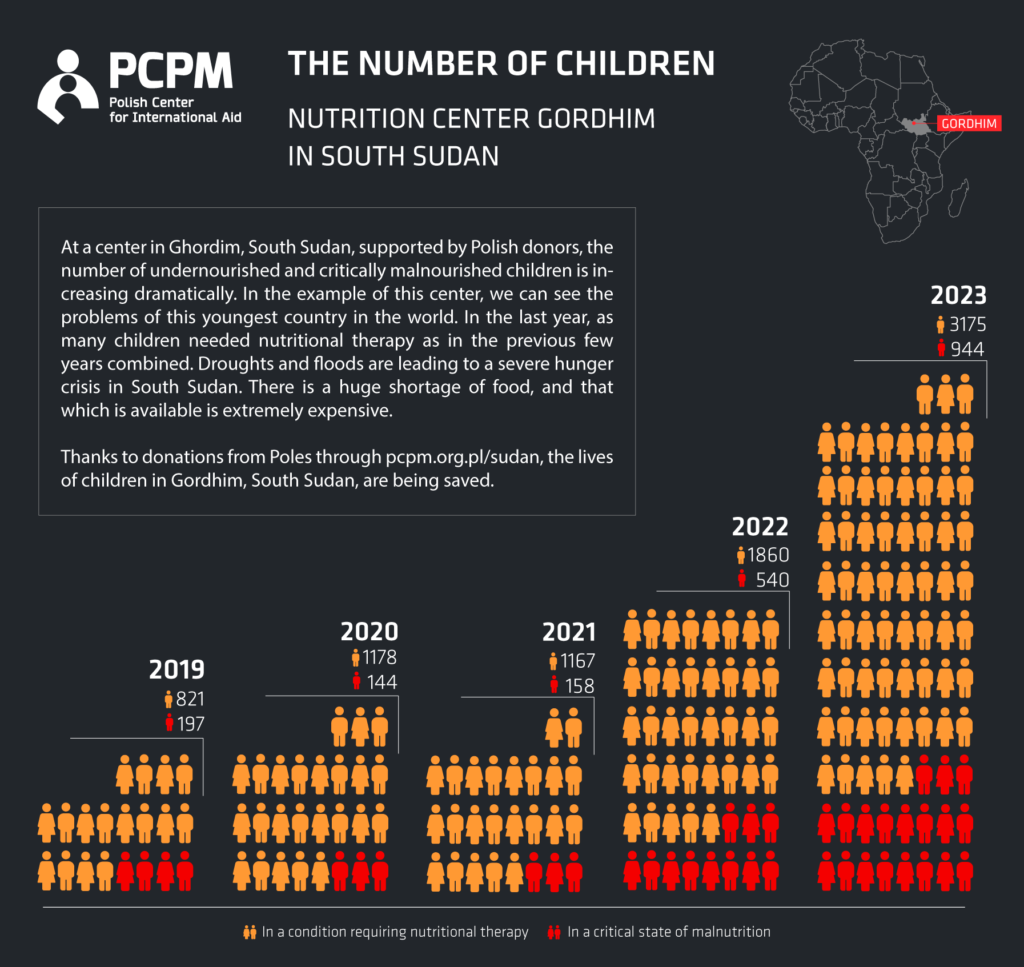
In South Sudan, the cost of living is exceptionally high. Food prices in the local market have nearly doubled. The Aweil East region, where the PCPM-supported Nutrition Center operates, heavily relies on food supplies from neighboring Sudan. Unfortunately, Sudan is embroiled in a civil war, and the historical trade links between the two regions, coupled with the lack of connecting roads, exacerbate the situation.
Calixte, who oversees the Gordhim Nutrition Center
Unusual daily life
Daily life in South Sudan is far from ordinary. For many mothers, the day doesn’t commence with school preparations but with a several-kilometer walk to a center where their children can receive medical attention. Among the nurse’s essential tools are paper strips, which have been integral to malnutrition relief efforts for decades.
The MUAC system (Measurement of Mid-Upper Arm Circumference) is a non-invasive technique used to measure the circumference of a child’s arm. It involves using a three-color tape to measure the distance between the child’s elbow and shoulder.
The utilization of the MUAC system is crucial for detecting malnutrition at an early stage. It allows us to identify malnutrition even before other signs, such as low body weight, become apparent in children. Armed with this information, we can promptly introduce appropriate treatment using therapeutic foods.
The specialized peanut-based paste, enriched with essential nutrients, vitamins, and minerals, is ready for immediate use upon opening. The collection for South Sudan continues throughout the year, with only 22 USD to provide full therapy for one child.